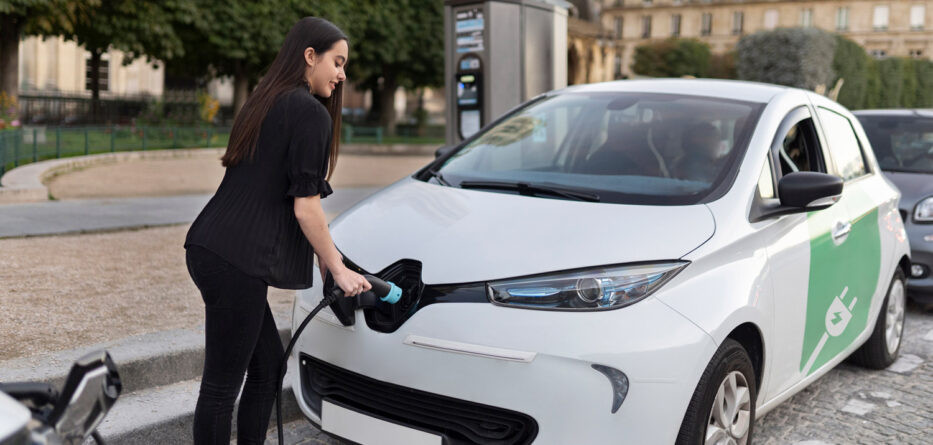Roddy Scheer & Doug Moss
EarthTalk
Transportation accounts for almost a third of all U.S. greenhouse gas emissions, making the switch to EVs a welcome change for environmental advocates. But is ditching your old conventional wheels for a shiny new EV really the best thing for the planet? To evaluate how eco-friendly a car is, you should consider the environmental impacts of its three life stages: its creation, operation, and disposal.
Studies conclude that manufacturing a vehicle accounts for around 25 percent of its lifetime carbon footprint. Making a car creates a lot of pollution as raw materials have to be extracted, transported, and manufactured. In fact, according to the environmental consulting firm Ricardo, 46 percent of an EV’s total carbon footprint is generated before it even travels a mile. Keeping your old car eliminates the environmental effect of manufacturing a vehicle.
An important question arises: Do the negative environmental impacts of manufacturing EV batteries outweigh the benefits? A report by CarbonBrief concludes that EVs have a smaller carbon footprint than used gasoline cars in about four years and a smaller carbon footprint than new ones in around two years. EVs also benefit the environment by eliminating tailpipe emissions and having better fuel economies than gasoline-powered cars. And while the sustainability of EVs ultimately depends upon the mix of renewable energy in the grid where you live, even with the current renewable energy percentage, driving EVs tends to be beneficial. The more renewable energy you charge your car with, the better: So consider choosing your utility’s greener options or purchasing Renewable Energy Certificates (RECs).
EVs themselves pose a bit of a difficulty when it comes to responsible disposal. Recycling EV batteries can be difficult as the design and chemicals vary greatly from one battery to another. Most batteries aren’t even designed to be recycled. While much is being done to address this issue, it remains a significant contributor to toxic waste.
Financially speaking, according to a report by GetJerry, EVs cost an average of $56 per month more to insure than gasoline-powered cars. They are also more expensive to repair. But in spite of these downsides, operating an EV comes with certain economic benefits. It can help you evade the ever-increasing gas prices and the ever-increasing maintenance needs of an aging gas-powered vehicle. It also may be eligible for tax incentives and credits. And prices of battery EVs are seeing significant reductions: According to EVI-USA, “Experts expect that their prices will be at par with diesel or petrol vehicles between 2025 and 2027.”
To conclude, over their full life, electric and hybrid vehicles have significantly lower carbon footprints than normal cars. But, EVs tend to be a bit more expensive. If investing in one is out of reach, you can reduce your transport-related issues by walking, biking, or using public transport whenever possible.
CONTACTS: CarbonBrief, carbonbrief.org; EVs Save You Gas Money, but EV Insurance Costs More, getjerry.com/trends-reports/evs-save-you-gas-money-but-ev-insurance-costs-more; Will Electric Vehicles Come Down In Price? evi-usa.com/will-electric-vehicles-come-down-in-price; EPA’s Fast Facts on Transportation Greenhouse Gas Emissions, epa.gov/greenvehicles/fast-facts-transportation-greenhouse-gas-emissions.
EarthTalk® is produced by Roddy Scheer & Doug Moss for the 501(c)3 nonprofit EarthTalk. See more at https://emagazine.com. To donate, visit https://earthtalk.org. Send questions to: question@earthtalk.org.






